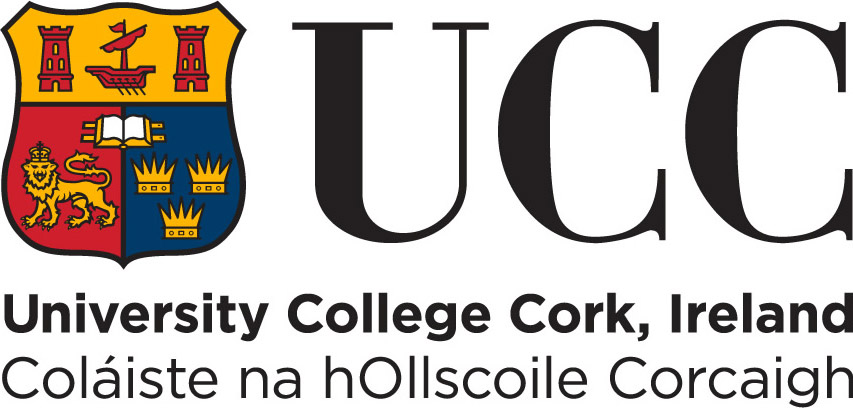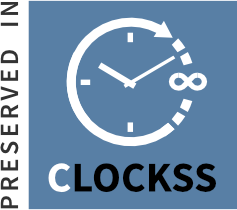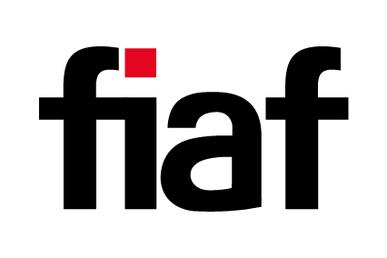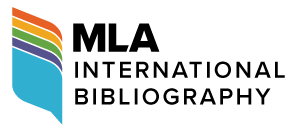Cinematic Poetics and Reclaiming History: Chauka, Please Tell Us the Time as Legacy
Jeremy Elphick
Introduction
Australia’s brutal legacy of offshore detention has been marked by tragedy, human rights abuses and international condemnation. This paper examines the process by which successive Australian governments have advocated and implemented border and immigration policies and, more specifically, how control of information has been a central tactic in defining how such policies are perceived by the public. There is a questionable disconnect between Australia’s political class and those targeted by the immigration policies it sustains. Chauka, Please Tell Us the Time (Behrouz Boochani and Arash Kamali Sarvestani 2017) captures the cruelty of Australia’s offshore detention policy, while also intimately mapping the emotional and psychological experience of living in detention. I argue that Chauka, Please Tell Us the Time marks a fundamental shift, blunting attempts to dehumanise those in detention from a distance, while also highlighting the moral crisis that this dehumanisation has created.
Playing Politics in the History Wars
Australia’s current Prime Minister (of a few months at the time of writing), Scott Morrison, was the Immigration Minister who in September 2013 launched “Operation Sovereign Borders”, which sent those arriving by boats to offshore detention centres. This policy was rebuked by the Australian Human Rights Commission (“Pathways to Protections”) and the UNHCR, the latter arguing that the practice may have violated the Refugee Convention (“International Covenant on Civil and Political Rights”). Under Morrison, the Department of Immigration developed a reputation for withholding information from journalists and, consequently, much of the Australian public. Morrison is proud of his tenure at the Department of Immigration. In his office, he displays a kitsch boat trophy, which is adorned with the tasteless declaration in Arial bold font: “I stopped these” (Davidson).
In 2015, the Australian Human Rights Commission assessed Morrison as having failed to act in the best interests of children in detention and judged his government as culpable for the poor mental and physical health of children in detention (“Asylum Seekers”). Morrison and his party pushed back, stating that the report was “politically motivated” (Medhora and Doherty). Still today, there is no shortage of reports of human rights abuses in Australia’s offshore detention facilities, but the three-pronged response is always the same: the boats have been stopped, the reports are not true, and the actions of the Australian government are necessary. Repeating these phrases ad infinitum, regardless of their veracity, has a clear aim: to frame the boundaries of the immigration debate and to determine what should be discussed. The debate remains centred on the arrival of the boats and attempts to stop them. The premise of whether “stopping the boats” is ethically and morally dubious goes largely unquestioned. Answering it would draw attention to a decades-long illegal offshore detention policy defined by human rights abuses and a worsening crisis. On the day of writing, the United Nations has demanded the closure of Australia’s offshore detention centres and an immediate evacuation of offshore detainees, citing seventy-eight cases of attempted suicide and self-harm in Nauru over the past year (“MSF”). Manus and Nauru were both opened in 2001, closed in 2004 and 2008 respectively, and reopened in 2012 under Labour’s Gillard government. While in power, Australia’s two major political parties have worked to suppress the details of human rights abuses in detention, which indicates their awareness of what is at stake and how history will be written.
Chauka, Please Tell Us the Time as a Record
Boochani and Kamali Sarvestani view Chauka, Please Tell Us the Time within its broader political and historical context. The film exists as an invaluable document, capturing the realities of Australia’s offshore detention policies and entering them into the history books, before the ability to do so was erased with the demolition of the Manus camp where the film was conceived. The film reflects Boochani’s “Manus Prison Theory”, a theory that builds upon Agamben’s work on how states exercise power and how power operates in a biopolitical sphere. Agamben argues that the idea of a state cannot exist without it being premised on the exclusion of another (State). In this context, the Australian state cannot exist without the conditions that produce the offshore detention camps. These arguments are also applied to prisons and policing regimes, becoming more applicable when such facilities and institutions exist outside of normal laws. Australia’s refugee detention and border control regime operates as a tangible instance of where a bureaucratic decision to brand a situation an “emergency” has been used to place a group (refugees and asylum seekers) outside the category where basic human rights are a given. The emotionally raw portraits of detention seen in Chauka, Please Tell Us the Time function as searing indictments of Australia’s inhumane border regime.
The codirector Kamali Sarvestani has revealed that “we had no idea what would happen with this film, where it was going to end up, what the outcome was going to be” (qtd. in Elphick). There were objectives that both Kamali Sarvestani and Boochani hoped to achieve, as well as an understanding of what type of film they wanted to make. Fluidity is essential to Chauka, Please Tell Us the Time’s groundbreaking immediacy in the face of impermanence. Elements of Boochani’s work are informed by his journalistic background, but Chauka, Please Tell Us the Time also had to engage with the cinematic sphere. A mechanical look at day-to-day life in Manus would have fallen short of Kamali Sarvestani and Boochani’s vision, while a strictly fictional and retrospective reimagining of the space would have felt incomplete. Abbas Kiarostami—whose work integrates elements of the poetry it frequently employs—established an early point of common ground between Boochani and Kamali Sarvestani. In fact, Kamali Sarvestani’s participation in a programme mentored by Kiarostami motivated him to contact Boochani, and he speaks of the late Iranian filmmaker’s influence on the work:
I don’t want this to be the camera of a journalist. I want you to use the camera in order to make images, to create images, like portraits. Like Kiarostami. Behrouz turned around and said, “Actually, I love Kiarostami.” The most important thing was that, Behrouz, and a camera. That’s it. (qtd. in Elphick)
Kamali Sarvestani notes that Chauka, Please Tell Us the Time was never a work “about showing everything”, but rather “about showing something with a purpose” (Elphick). The scope of the work is a consequence of this focus and the moments of restraint are able to convey more than they necessarily depict on screen. Kiarostami’s influence is rendered into something that is uniquely and explicitly the product of Kamali Sarvestani and Boochani’s collaboration. The two directors engage with Kiarostami’s central tenets in a way that reconciles them with the broader vision for their work. This is epitomised in one of Chauka, Please Tell Us the Time’s most stunning scenes, where a pair of Manusian children are being filmed. They are on the outside, while Boochani films the scene from inside the prison. As a man sings a Kurdish folk song, the children dance. This moment in the film recalls a quote from the Kurdish-Iranian filmmaker, Bahman Ghobadi, who worked as assistant director on Kiarostami’s The Wind Will Carry Us (Bad ma ra khahad bord, 1999). Ghobadi argues that Kurdish life “has historically been strewn with tragedy and hardship, with which the Kurd’s cope and, which they try to transcend”. He continues, “we can survive for a week or so without food or drink but not without music” (qtd. in Naficy 236).
The scene highlights the history and diasporic nature of Chauka, Please Tell Us the Time, while also offering an indictment of the pervasive neocolonial underpinnings of these offshore detention camps, where a far poorer neighbouring country to Australia has been forced to take on the burden of a far wealthier one. A neocolonial dynamic underpins the facility on Manus Island, where a country with a far greater degree of geopolitical power and wealth has established offshore detention processing in another country. Scott Lauria Morgensen’s essay, “The Biopolitics of Settler Colonialism”, considers this dynamic as part of a process of settler colonisation producing “specific modes of biopolitics that sustain not only settlers but also regimes of global governance that inherit, extend, and naturalise their power” (53). Death’s presence in the film comes as a reminder of both the realities of the prison, as well as the dynamics of power it represents. Achille Mbembe’s notion of “necropolitics”—in itself part of the same broad contemporary discourse as Agamben’s Homo Sacer—takes as its thesis the idea that sovereignty exists in the power and ability to dictate who may live and who may die. Mbembe considers the nature of “colonial occupation” as a “matter of seizing, delimiting, and asserting control over a physical geographical area—of writing on the ground a new set of social and spatial relations” (26).
Chauka, Please Tell Us the Time is as much about the Manusians as it is about those detained on the island. Boochani and Kamali Sarvestani depict how Australia’s offshore detention policy treats “locals as colonial subjects” (Elphick); they also emphasise the hegemonic relationship that maintains the detention centre. The film resists the process of systematic dehumanisation that has targeted both the inhabitants of Manus Island and those detained on it. The film is most successful in achieving this in the moments that defy genre and form, such as the aforementioned scene where a Kurdish man sings as locals dance.
Chauka, Please Tell us the Time as Legacy
It is unsurprising that conversations with Boochani or Kamali Sarvestani can veer between the inspired and unwavering to the disillusioned. There is an undeniable distance between what the directors have achieved and the attention their film has received. As mentioned earlier, the film not only challenges the status quo on the issue of offshore detention, but also criticises the moral lapse and disengagement that allows these camps to exist. The film therefore draws attention to a complicity many viewers may be uncomfortable accepting. Boochani has spoken about the reception of Chauka, Please Tell Us the Time with a mixture of pessimism, resolve and purpose. I first spoke to Boochani during the Sydney Film Festival of 2017, where Chauka, Please Tell Us the Time was screened. Boochani was unable to attend the Sydney screening (or a later screening at London Film Festival). I questioned Boochani on this situation and was taken aback by his response, which assailed systematic failures and institutional apathy with a tone of disappointment more than anger. Boochani expressed concern about the response of the arts community and posed a stark, unanswered question: “How can they let a politician determine the fate of an artist?” (qtd. in Elphick).
Conclusion
Chauka, Please Tell Us the Time is an extraordinary film. It operates with a tangible sense of pain and honesty that is grounded in a political imperative. It carries an understanding of the gravity of the history it seeks to impact, and trades the ephemeral for permanence even when dealing with this contemporary moment. Chauka, Please Tell Us the Time operates with a spirit and conviction that differs to the barren, politically calculated attempts at platitudes outlined earlier. Boochani and Savestani remind us that patience has more virtue than opportunism and that history is longer than an election cycle.
References
1. Agamben, Giorgio. Homo Sacer: Sovereign Power and Bare Life. Stanford UP, 1998.
2. ---. State of Exception. U of Chicago P, 2005.
3. “Asylum Seekers, Refugees and Human Rights.” Australian Human Rights Commission, 2nd ed., 2017, humanrights.gov.au/sites/default/files/document/publication/AHRC_Snapshot%20report_2nd%20edition_2017_WEB.pdf. Snapshot Report
4. Boochani, Behrouz, and Arash Kamali Sarvestani, directors. Chauka, Please Tell Us the Time. Sarvin Productions, 2017.
5. Boochani, Behrouz. “Manus Prison Theory.” The Saturday Paper. 11–17 Aug. 2018, thesaturdaypaper.com.au/opinion/topic/2018/08/11/manus-prison-theory/15339096006690
6. Davidson, Helen. “‘I Stopped These’: Scott Morrison Keeps Migrant Boat Trophy in Office.” The Guardian. 19 Sept. 2018, theguardian.com/australia-news/2018/sep/19/i-stopped-these-scott-morrison-keeps-migrant-boat-trophy-in-office?fbclid=IwAR149RfIY1hzjhC7JyeRqd3PUa1u-BBz0ds1ruFeUIJL8vQz8Lcix-wbYTA
7. Elphick, Jeremy. “Chauka, Please Tell Us the Time—An Interview with Arash Kamali Sarvestani and Behrouz Boochani.” FourThreeFilm. 13 June 2017, fourthreefilm.com/2017/06/chauka-please-tell-us-the-time-an-interview
8. Giakoumelos, Peggy. “Australia has a Serious Human Rights Problem.” SBS News. 19 Jan. 2018, sbs.com.au/news/australia-has-serious-unresolved-human-rights-problems-hrw-report?fbclid=IwAR10tPDtSVraiSVH9xDYnCgwqeJmKq1japi6ThUvZJ4QgaAIXcEk-0wvzxg
9. “International Covenant on Civil and Political Rights.” United Nations. 2 May 2016, CCPR/C/116/D/2233/2013, www.ohchr.org/Documents/HRBodies/CCPR/CCPR-C-121-3.docx
10. Kiarostami, Abbas, director. The Wind Will Carry Us [Bad ma ra khahad bord]. MK2 Productions, 1999.
11. Mbembe, Achille. “Necropolitics.” Translated by Libby Meintjes. Public Culture, vol. 15, no. 1, 2003, pp. 11–40, DOI: https://doi.org/10.1215/08992363-15-1-11
12. Medhora, Shalailah, and Ben Doherty. “Tony Abbott Calls Report on Children in Detention a ‘Transparent Stitch-Up’.” The Guardian. 11 Feb. 2015, theguardian.com/australia-news/2015/feb/12/tony-abbott-rejects-report-children-detention-blatantly-political
13. Morgensen, Scott Lauria. “The Biopolitics of Settler Colonialism: Right Here, Right Now.” Settler Colonial Studies, vol. 1, no. 1, 2011, pp. 52–7, DOI: https://doi.org/10.1080/2201473X.2011.10648801
14. “MSF Calls for the Immediate Evacuations of All Asylum Seekers and Refugees from Naura.” Médecins sans Frontières. 11 Oct. 2018, msf.org.au/article/statements-opinion/msf-calls-immediate-evacuation-all-asylum-seekers-and-refugees-nauru.
15. Naficy, Hamid. A Social History of Iranian Cinema. Vol. 4: The Globalizing Era, 1984–2010. Duke UP, 2010.
16. “Pathways to Protection: A Human Rights-Based Response to the Flight of Asylum Seekers by Sea”. Australian Human Rights Commission. Policy Report. 2016, www.humanrights.gov.au/our-work/asylum-seekers-and-refugees/publications/pathways-protection-human-rights-based-response
Suggested Citation
Elphick, Jeremy. “Cinematic Poetics and Reclaiming History: Chauka, Please Tell Us the Time as Legacy.” Alphaville: Journal of Film and Screen Media, no. 18, 2019, pp. 199–204. https://doi.org/10.33178/alpha.18.18.
Jeremy Elphick is a writer, journalist and video editor with a focus on cinema, politics and media, and a particular interest in their points of intersection. He completed a BA at the University of Sydney and an MA in Media and Production at the University of Technology Sydney. He cofounded the Sydney-based film website, 4:3 (fourthreefilm.com), where he edits, writes, and conducts interviews.









